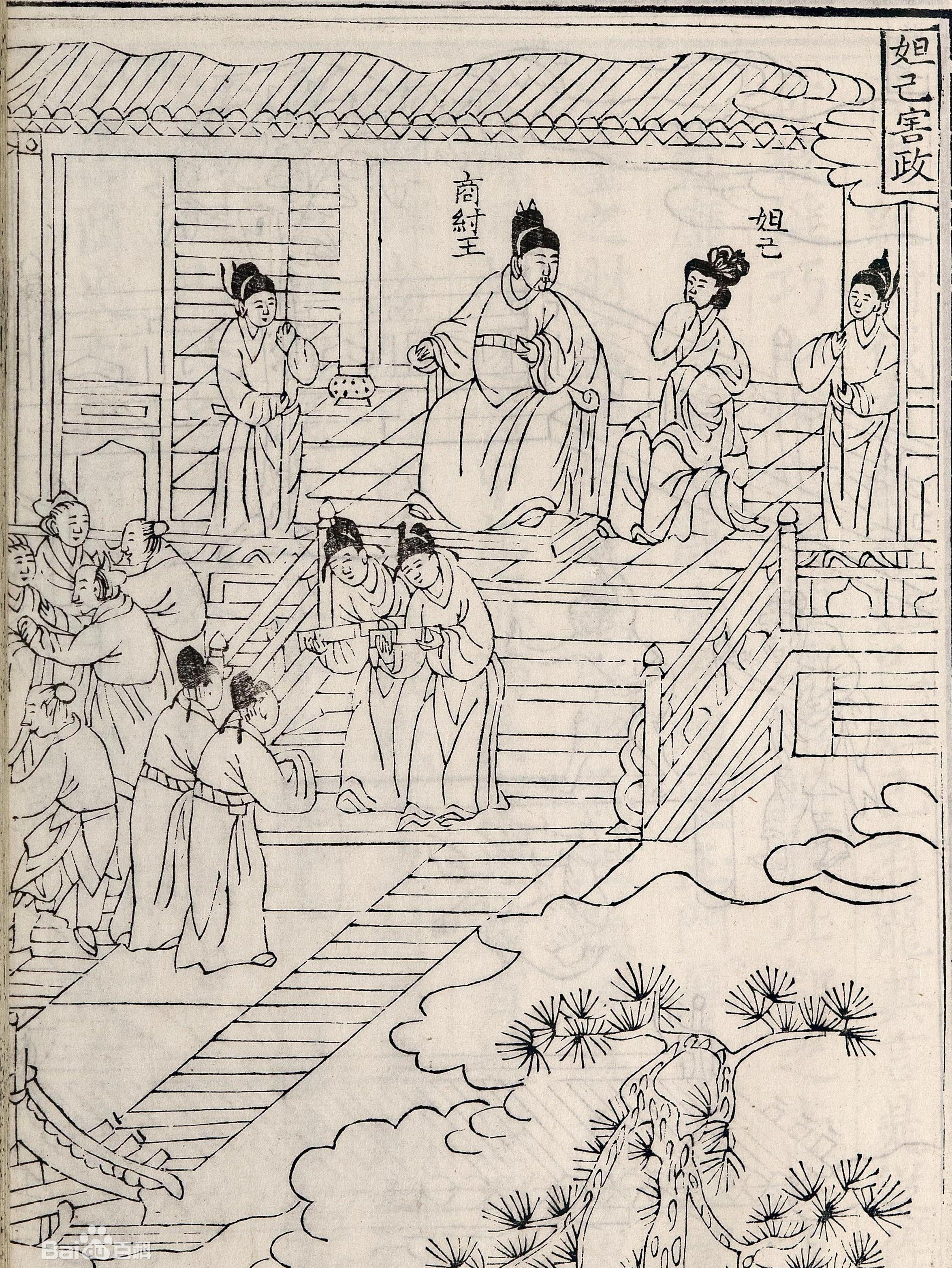
In Chinese history, the King of Shang has always been regarded as a tyrant, on a par with Xia Jie, because the feudal orthodoxy of Confucianism as the mainstream highly respects the Zhou Li, exaggerating the Western Zhou Dynasty, and the Zhou Dynasty rulers, in order to prove the legitimacy of their regime, have been slandering the Shang Dynasty through various means, saying that the Shang King is worthless, and with the advancement of time, the accusations against the King of Shang are increasing.
Some people say that the victory in the conquest of Dongyi made Di Xin gradually become arrogant and arbitrary, especially in his later years, drunk and lascivious, and ignored political affairs. He once set up a meat forest and a wine pond in Chaoge to seek pleasure. The group of courtiers did not accept it, for which his uncle Bigan was killed, his brother Weizi fled, and Taishi Mizi pretended to be crazy. But the favored concubine has been followed, and only the concubine has obeyed, wantonly killing innocents. Xu Zhonglin wrote "Fengshen Yanyi" based on historical legends and fantasy elements.
However, the pre-Qin literature did not make many accusations against him, and even some documents praised Di Xin for being a clever, brave, talented, and rare hero. Zigong once said: "It is not as good as it is even worse." It is the evil of a gentleman who is inferior, and the evil of the world is returned. The title of King of Sui was also given to Di Xin by King Wu of Zhou.
What does the real Shang King look like?
Di Xin (1075 BC – 1046 BC), courtesy name Di Xin, also known as the King of Shang, was the last monarch of the Shang Dynasty. According to records, when Di Xin was young, he was "discerning the disease, smelling very sensitively; talented, and fierce beast", and after succeeding to the throne, he worked hard to govern, vigorously reformed, did not kill slaves, developed production, updated concepts, and did not do ghosts and gods. He trained troops deep in the mountains, forged weapons, and led heavy troops to conquer Dongyi. He managed the southeast, consolidated the unification of Dongyi and the Central Plains, enabled the advanced Central Plains culture to spread to the HuaiHe and Yangtze River basins, and laid the foundation for the unification of the Chinese nation. After the Conquest of Dongyi by the Yin Dynasty, the territory expanded, agriculture developed, and the wealth and grain increased, and Di Xin built warehouses to store grain and treasure. In the "Records of History", it is recorded that "thick endowment is sharp to the money of the real deer platform, and the millet of the Ying ju bridge is the corn". These reforms touched the interests of the princes and the shang nobles, and the position of the emperor was not stable. Later, the powerful King Wu of Zhou, united with the Yong, Shu, Qiang, Wei, Peng, Pu and other tribes, led tens of thousands of troops, attacked Chaoge, and Di Xin was defeated in the Battle of Zhaoge. Emperor Di Xincang organized slave soldiers to fight, and the two sides fought a big battle in Makino (south of Chaoge City to Weihui City) and returned to Chaoge, denglutai Mengzhu Jade clothes self-immolation and died.
The death of Di Xin was tragic and decisive, showing the demeanor of a generation of true heavenly sons, which was more than the self-sacrifice of the Chu Emperor and the Chongzhen Emperor in the later generations, and it was a model of "the death of the king of the county" and "the son of heaven guarding the country", which deserved the respect and admiration of future generations.
After the establishment of the Zhou Dynasty, King Wu of Zhou, in order to show his unending benevolence, allowed the descendants of Lu to bury his remains. Wu Geng, the son of King Huan, followed the will of "buried in the Qi River after death", ordered people to cut off the Qi Water, dig a vertical hole in the riverbed and bury it, and after sealing the mouth, the river flowed. Later, due to the eastward movement of the river, the riverbed became lowered by the sun, and the tomb was exposed, and it was gradually connected with the embankment.
The tomb of King Huan is located 12 miles east of the city of Qi county in Henan, on the west bank of the Qihe River, on the right is Yiling Mountain, and on the left is near qishui. The tomb of the King of Lu is rectangular, that is, a large mound, 50 meters long, 15 meters wide and 7 meters high. In front of the tomb, there was a huge stele with the seal book "Tomb of Yin Yunxin". It no longer exists. In September 1987, a new monument was erected, and the inscription "Tomb of the King of Qiu" was engraved on the Zhougu City. The tomb is surrounded by lush forests, and there are clear crystals on the east side, like the qi water of the jade belt, and the whole cemetery is pure and elegant, and the scenery is pleasant. There is also the tomb of Dai Ji and the tomb of Queen Jiang near the tomb of King Gong.
Ki water